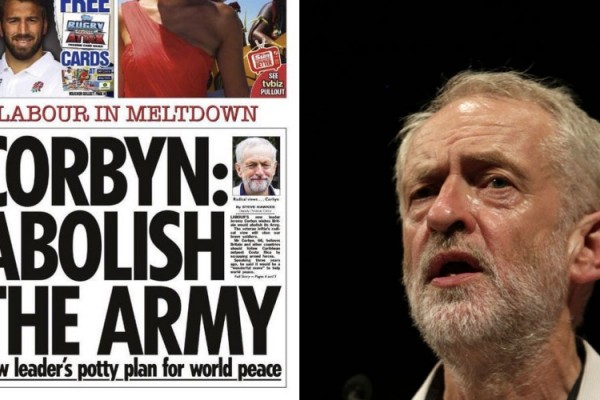A Very Tory Commission
“THE WORST POLITICAL SCANDAL IN CANADIAN HISTORY” “WORSE THAN WATERGATE” “VOTERS SURE TO PUNISH LIBERALS”
These headline sentiments sum up the media coverage of the “revelations” produced by the Gomery Inquiry into Canada’s federal sponsorship program, at least as it unfolded in April, 2005.
The Montreal hearings put the spotlight on a long line of prominent people, all of whom appeared to have been gleefully putting their hands into the taxpayer’s pocket. The creative villains in the “adscam” affair were Liberals or friends of the Liberal Party of Canada. Reporters, columnists, talk-show hosts and cartoonists bellowed and brayed about this betrayal of the democratic process, resulting in a frenzy of speculation over a possible snap election.
In all this coverage, little has been said about the inherent unfairness of the Gomery Commission itself. First, there was the entirely unnoticed and bizarre appointment of Bernard Roy as the commission’s handsomely paid chief counsel. Justice John Gomery accepted Mr. Roy, fully aware that he was principal secretary to Brian Mulroney during that prime minister’s scandal-ridden term of office. As such, Roy was Mulroney’s chief spin doctor.
He was also one of several men charged with conspiracy to commit fraud in the now-forgotten Greg Keeley case. Those charges were later stayed, but that information, along with the fact that Roy’s Tories were turfed from office partly by Liberal charges of ethical misconduct, should have been enough to eliminate him from a job with this inquiry.
Then there was the Star Chamber-like structure of the commission, which allowed for unsubstantiated testimony that individuals named could not challenge. Faithful followers of the hearing never saw any actual evidence or actual cross-examination.
Finally, the Gomery Commission seemed to operate in a vacuum, missing the political context it needed to be understood. The reprehensible Chuck Guite, who has now been charged with fraud in the sponsorship scandal, has been portrayed as a friend of the Liberal Party. In fact, he rose to prominence under Brian Mulroney’s Conservatives.
Journalist Stevie Cameron documented Guite’s venal activities eleven years ago in her explosive, bestselling book, On the Take: Crime, Corruption and Greed in the Mulroney Years. In a chapter called “It Pays to Advertise,” she described the ludicrous abuses that occurred under the umbrella of Canada’s 125th-anniversary celebrations in 1992, along with cushy jobs and fat contracts in the millions for ill-defined work done (or not done) by scores of Conservative pals. It should be noted that nobody attempted to sue Cameron when On theTake was published.
Given the media histrionics around the admitted abuses of the federal sponsorship program, it’s interesting to remember how Mulroney was treated when it was discovered that, just after leaving his post as prime minister, he had accepted $300,000 in cash in a hotel room from German profiteer Karlheinz Schreiber. The payment was made in 1993; National Post reporter Phil Mathias uncovered that story and wrote it in 2001; his editor at the Post, Ken Whyte (now at the helm of Maclean’s magazine) refused to print it, and none of this information surfaced publicly until 2003. To make matters worse, Mulroney had lied under oath about his “innocent” relationship with Schreiber.
When the story was finally told in the pages of the Globe & Mail, Mr. Mulroney’s $300,000 was barely mentioned. Instead, the Globe made its former columnist, Stevie Cameron, the story, suggesting she was a police informer, with the inevitable connotation that she had personally victimized Mulroney in her reporting, especially in the misbegotten Airbus investigation.
Media reaction to the Mulroney/Schreiber story was too low to register. Amazingly, it has not seen the light of day again.
Canadians are left with two questions: First, is it the offence (rampant corruption) or the offender (The Liberals) that has generated the hyperbolic coverage of the Gomery Commission in Canada’s conservative media?
Second, if sitting governments actually do advertising business in the manner suggested by Gomery’s witnesses, what about other business? Presumably, contracts in legal matters, the military, police and security are managed in the same way.
If so, is it even possible to measure the abuse of Canadians, their trust and their money under the political system we have now?
This article appeared in the May/June 2006 issue of Canadian Dimension (Fighting Harper).









